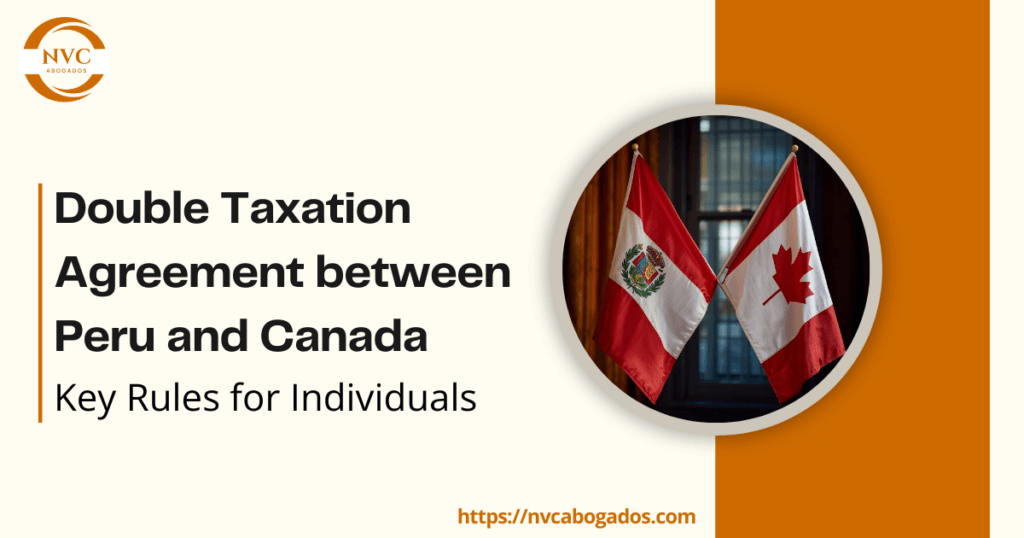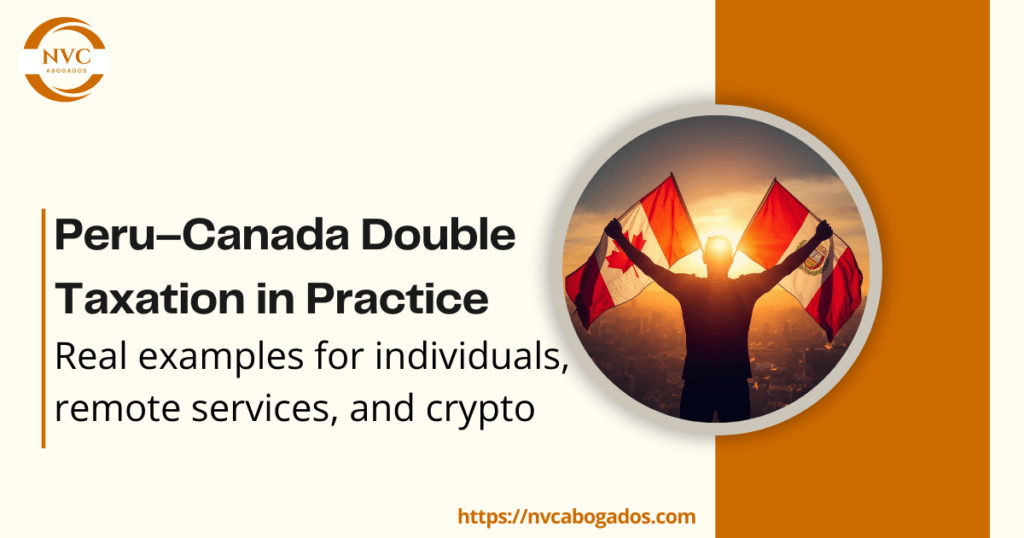Peru has become an increasingly attractive destination for international buyers thanks to its stunning landscapes, affordable real estate, and investor-friendly laws. But navigating the legal and tax framework can be overwhelming—especially if you don’t live in the country full-time.
In this comprehensive legal guide for buying property in Peru as a foreigner, we break down everything you need to know—from required documents and notarial procedures to taxes, payment methods, and how to safely purchase even unregistered property. Whether you’re a non-resident looking to invest or a new expat settling in, this step-by-step guide will help you make informed decisions and avoid costly mistakes.
1. Can a foreigner buy property in Peru as a tourist?
Yes. Peruvian law allows foreign nationals to purchase real estate in the country—even as tourists. Residency or an immigration card (Carné de Extranjería) is not required, except for properties located in border areas, which do need special authorization from the state.
2. What do you need as a tourist?
You must have a valid tourist or business visa. While the tourist visa is no longer physically stamped in your passport, you can check your status online:
Additionally, you must request a permit from the National Superintendence of Migration known as the “Permiso para firmar contratos” (Permit to Sign Contracts). This requires your passport info and date of entry.
3. Property Purchase Process
Documents Provided by the Seller:
Copy of the title deed (escritura pública)
SUNARP registration certificate (Copia literal)
Latest HR and PU tax forms
Proof of payment for annual property tax
Certificate of no municipal debts
Copy of ID (DNI, CE, or passport)
If using a power of attorney: notarized copy and validity certificate
Income tax payment proof (if applicable)
Documents Provided by the Buyer:
Copy of passport with valid visa and contract-signing permit
Proof of payment method and ideally a Peruvian bank account (to request a bank-certified check)
Documentation of lawful source of funds
3.1 Commercial Steps in the Purchase
Search and Legal Check: Verify ownership and legal status through SUNARP.
Initial Agreement (Arras): Optional but common. A down payment of 10–20% is made and a date is set for the signing of the “minuta” (preliminary sale contract).
Minuta and Public Deed: After the minuta, the parties sign the public deed before a notary.
Municipal Clearance: The seller must obtain a “certificate of no municipal debts” from the municipality where the property is located and where property taxes (predial) and municipal service fees (arbitrios) are paid, if applicable. (Note: Rural or agricultural properties are exempt.)
Alcabala Tax Payment (if applicable): The buyer must pay the Alcabala tax (3%), if applicable. This tax does not apply when the property’s commercial value is below 10 UITs (S/. 53,500.00 for the year 2025) or if it’s a first-time sale in a horizontal property (condominium) or multifamily building.
Property Registration: The public deed is signed before a notary. The notary will then issue and send the “parte notarial” (an official copy of the deed) to SUNARP to register the transaction under the name of the new owner.
4. Informal and unregistered properties
If the property is not registered with SUNARP (known as informal or imperfect possession), the transaction involves a certain level of risk—even though this type of sale, often referred to as a “transfer of possessory rights and shares”, is quite common in Peru. In such cases, greater precautions are required, and it’s strongly recommended to hire a lawyer experienced in property regularization, who can thoroughly review all documentation, historical records, and the actual legal and physical situation of the property.
This type of transaction—while unfamiliar to many foreign buyers—is frequent in areas such as the Sacred Valley in Cusco, the jungle region, and beachfront land, especially along the northern coast of the country.
In these cases, the buyer will only receive the notarized copy of the deed (testimonio de escritura) and must also complete the Municipal Registration (Alta Municipal) in order to start paying property tax (Impuesto Predial) from January 1st of the following year.
It is highly recommended to begin the legal property regularization process (saneamiento registral) as early as possible. This process leads to a formal SUNARP title, which not only provides legal security, but is also essential if you ever decide to sell the property in the future—especially if the buyer wishes to purchase the property using a mortgage, which is not possible if the property is held only through possession rights.
5. Alcabala Tax (Real Estate Transfer Tax)
This municipal tax is 3% of the commercial value, minus the first 10 UIT (S/. 53,500 in 2025). Exemptions apply for:
First-time sales from construction companies
Transactions below the taxable threshold
6. On-going taxes after the purchase
The property is subject to property tax (impuesto predial) – this is an annual municipal tax paid by the owner to the local municipality where the property is located. The payment must be made through the municipal revenue office (Gerencia de Rentas).
In addition, municipal service fees (arbitrios municipales) must be paid. These fees cover public services such as:
municipal security (serenazgo)
maintenance of parks and green areas
street cleaning
garbage collection and other related services
These charges apply mainly to urban properties.
7. Valid Payment Methods
For transactions above USD $10,000, a banked payment method is mandatory. Common options:
Bank-certified check issued by a Peruvian bank
Domestic bank transfer within Peru
International wire transfer to the seller’s account
8. Buyers or sellers over age 65/70
Sellers or buyers over a certain age must present a certificate in the official format provided by the Ministry of Health. This form is available in pharmacies and must be completed by a licensed medical professional—either a psychiatrist or psychologist—who confirms that the person is in full possession of their mental faculties. The professional must include their valid license number on the certificate.
9. Foreign funds - Required documentation
If you’re not a Peruvian resident, you must prove the legal origin of your funds in case of inquiries from:
UIF (Financial Intelligence Unit)
SBS (Superintendence of Banking and Insurance)
SUNAT (Tax Authority)
Recommended documentation includes:Bank statements
Tax returns
Inheritance or donation certificates (with certified Spanish translations)
10. Notarial process
The sale is formalized through a public deed signed at a notary’s office. The notary verifies the identity of the parties, the property titles, the legality of the transaction, and the relevant tax payments. Once these checks are complete, the deed is elevated to a public deed and registered in the Real Estate Registry known as SUNARP.
Each property has a unique “electronic registration number” (partida electrónica), which can be used to request a new certificate—either in person or online—that confirms the registered ownership of the property and ensures that there are no mortgages, judicial liens, or other legal restrictions that might limit its free transfer or affect its market value. In Peru, these certificates are valid for no more than 30 calendar days.
11. Municipal Registration (Registration as a tax payer)
Once the property has been registered, the new owner must go to the corresponding municipality and declare the transfer in order to update the property tax (impuesto predial) and municipal service fees (arbitrios).
This process is known as “Alta Municipal” and can be completed by presenting a copy of the public deed, the SUNARP registration (literal copy of the property), a copy of the buyer’s ID, and, if available, the certificate of “no outstanding debts” provided by the seller. This last document helps demonstrate that the property was purchased free of tax debts.
When the property is sold, the seller must also complete the process known as “Baja Municipal,” notifying the municipality and the new buyer to ensure that tax obligations for the property cease on December 31 of the year in which the sale occurred.
12. Can Foreign Non-Residents Rent Out Their Property?
To generate rental income from a property in Peru in a regular and legal manner, it is entirely permissible to lease or manage the property. Under the First Category Income Tax system, a monthly tax payment of 5% is applied to the gross rental income.
The same rule applies when renting through digital platforms. The total income received from bookings is added up, and 5% of that monthly total must be paid as tax.
13. What happens when you sell the property?
Foreigners can freely sell their property. If abroad, a notarized power of attorney can be granted locally or via a Peruvian consulate.
Income Tax on Gains: Required if there’s a profit. You must:
Get a RUC tax ID
Declare income to SUNAT as a non-resident individual
Pay 5% capital gains tax under Second Category Income
If the property includes a parking space or storage unit, it’s considered a single unit.
⚠️ If you sell three or more properties in one fiscal year, it’s considered a commercial activity and taxed at 30%.
14. When Is Capital Gains Tax Not Required?
No tax applies if:
The property was acquired before January 1, 2004, or
It is your only property, used as your main residence, and you’ve held it under your name for at least two years

Need Legal Guidance for Buying Property in Peru?
Buying property in Peru as a foreigner involves legal and tax complexities. A private consultation helps you avoid costly mistakes and ensures a smooth process from due diligence to signing.
Book your private consultation with Sergio Vargas to get clear, personalized guidance on every legal and tax aspect of your property purchase.
The session takes place via Zoom and can be conducted in English or Spanish.
Don’t miss out on important updates!
Subscribe to our Substack newsletter and get the latest articles on immigration, taxes, and real estate in Peru delivered straight to your inbox.




